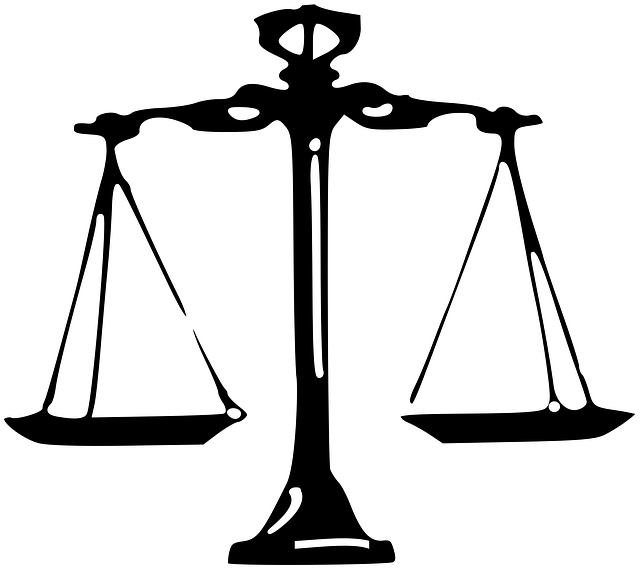The Role of Defense Counsel in Criminal Procedure is vital for exposing fraudulent financial schemes, from Ponzi schemes to accounting frauds. Skilled attorneys navigate complex cases, challenge evidence, and ensure fairness, using their expertise in law, economics, and finance to protect the accused and uphold justice without excessive punishment. This strategic role safeguards due process and the presumption of innocence, often achieving positive outcomes for clients accused of white-collar crimes.
In the intricate landscape of financial crimes, fraudulent practices pose a pervasive threat, demanding meticulous attention from legal professionals. This article delves into the multifaceted aspects of addressing such schemes, focusing on the crucial role of defense counsel within criminal procedure. From unraveling complex fraud networks to examining the legal obligations and strategic maneuvers in court, we explore essential elements for effective representation. Additionally, we highlight preventive measures, regulatory oversight, and the ongoing battle against white-collar crimes, emphasizing the indispensable contribution of defense attorneys in ensuring justice.
- Understanding Fraudulent Financial Schemes
- Defense Counsel's Legal Obligations
- Investigating White-Collar Crimes
- The Courtroom Role of Defense Attorneys
- Preventive Measures & Regulatory Oversight
Understanding Fraudulent Financial Schemes

Fraudulent financial schemes can take many forms, from complex Ponzi structures to sophisticated accounting frauds. Understanding these schemes involves recognizing patterns like false documentation, money laundering, and insider trading. The role of defense counsel in criminal procedure is pivotal; they help unravel intricate financial networks, challenge prosecution evidence, and ensure a fair trial. Skilled lawyers with an unprecedented track record in achieving extraordinary results can make all the difference in cases involving substantial financial crimes.
In these cases, defense attorneys must be adept at navigating complex legal territories, understanding economic principles, and interpreting detailed financial records. They play a crucial role in exposing inconsistencies, questioning methodologies, and presenting alternative explanations to juries in high-stakes trials. This strategic approach not only challenges the prosecution’s narrative but also underscores the importance of due process and the presumption of innocence.
Defense Counsel's Legal Obligations

The role of Defense Counsel in Criminal Procedure is multifaceted and critical, especially when addressing fraudulent financial practices. Legal obligations for defense counsel extend beyond simply presenting a client’s case; they must ensure a fair trial and protect the defendant’s constitutional rights. This involves thorough investigation, understanding complex financial regulations, and crafting effective legal strategies to avoid indictment.
Across the country, general criminal defense attorneys play a pivotal role in navigating these intricate cases. Their responsibilities include challenging the prosecution’s evidence, exposing procedural errors, and advocating for their client’s innocence. By employing robust investigative techniques and leveraging their expertise in financial law, defense counsel can help individuals accused of fraudulent practices, thereby ensuring justice is served without resorting to excessive punishment or avoiding indictment through loopholes.
Investigating White-Collar Crimes

The investigation of white-collar crimes, such as fraudulent financial practices, is a complex and intricate process. Defense counsel play a pivotal role in this procedure by ensuring that the rights of the accused are protected while navigating the legal labyrinth. They scrutinize evidence, challenge incriminating data, and present counterarguments to counteract the prosecution’s case. The goal is to achieve a fair trial, even in cases involving sophisticated financial maneuvers that can be hard to decipher.
A defense counsel with an unprecedented track record in white-collar crime cases brings invaluable expertise. Their ability to understand complex financial transactions and communicate them effectively to both the court and jury is key. By employing strategic tactics, these attorneys achieve extraordinary results—notably, they protect their clients’ interests while exposing the truth behind fraudulent practices, ultimately ensuring justice is served in the respective business sectors.
The Courtroom Role of Defense Attorneys

In criminal procedure, especially in cases involving white-collar crimes like fraudulent financial practices, the role of defense attorneys is pivotal. These legal professionals serve as a safeguard for the accused, ensuring they receive a fair trial and have access to robust legal representation. Defense counsel play a crucial part in navigating complex legal landscapes, interpreting laws, and presenting evidence strategically. Their primary goal is to protect their client’s rights while challenging the prosecution’s case.
During jury trials, defense attorneys are instrumental in shaping public perception of their clients. Through meticulous cross-examination, they aim to expose inconsistencies in witness testimonies and question the integrity of evidence presented by the prosecution. Moreover, defense counsel often leverage their knowledge of the law to raise legal objections, ensuring that procedural mistakes do not compromise their client’s chances. This strategic approach is particularly significant given the impact on the lives of individuals accused—whether from wealthy philanthropic and political communities or other sectors—whose reputations and careers hang in the balance.
Preventive Measures & Regulatory Oversight

The prevention of fraudulent financial practices requires a multi-faceted approach, with a significant role played by regulatory oversight and defensive measures. Regulatory bodies are tasked with establishing robust rules and guidelines to govern financial transactions, ensuring transparency and accountability. These regulations aim to deter potential wrongdoers by setting clear boundaries and imposing strict penalties for non-compliance. One crucial aspect is the involvement of defense counsel in criminal procedures; they guide corporate and individual clients through all stages of the investigative and enforcement process, offering legal counsel to navigate complex regulatory environments.
Effective oversight involves continuous monitoring, random audits, and prompt investigation of suspicious activities. By enhancing internal controls and implementing anti-fraud strategies, businesses can fortify their defenses against financial manipulation. Moreover, staying informed about industry trends and emerging fraud techniques enables proactive measures tailored to the respective business environment. This comprehensive approach ensures that both corporate entities and individuals are equipped to safeguard their financial integrity.
In addressing fraudulent financial practices, the multifaceted role of defense counsel is paramount within criminal procedure. From understanding intricate schemes to investigating white-collar crimes, these attorneys play a crucial part in ensuring due process and fairness. By examining legal obligations and courtroom strategies, we highlight the significance of their work in preventing and prosecuting such frauds. Strengthening regulatory oversight and adopting preventive measures further emphasize the essential role of defense counsel in navigating complex financial crimes, ultimately fostering a more robust legal framework.






